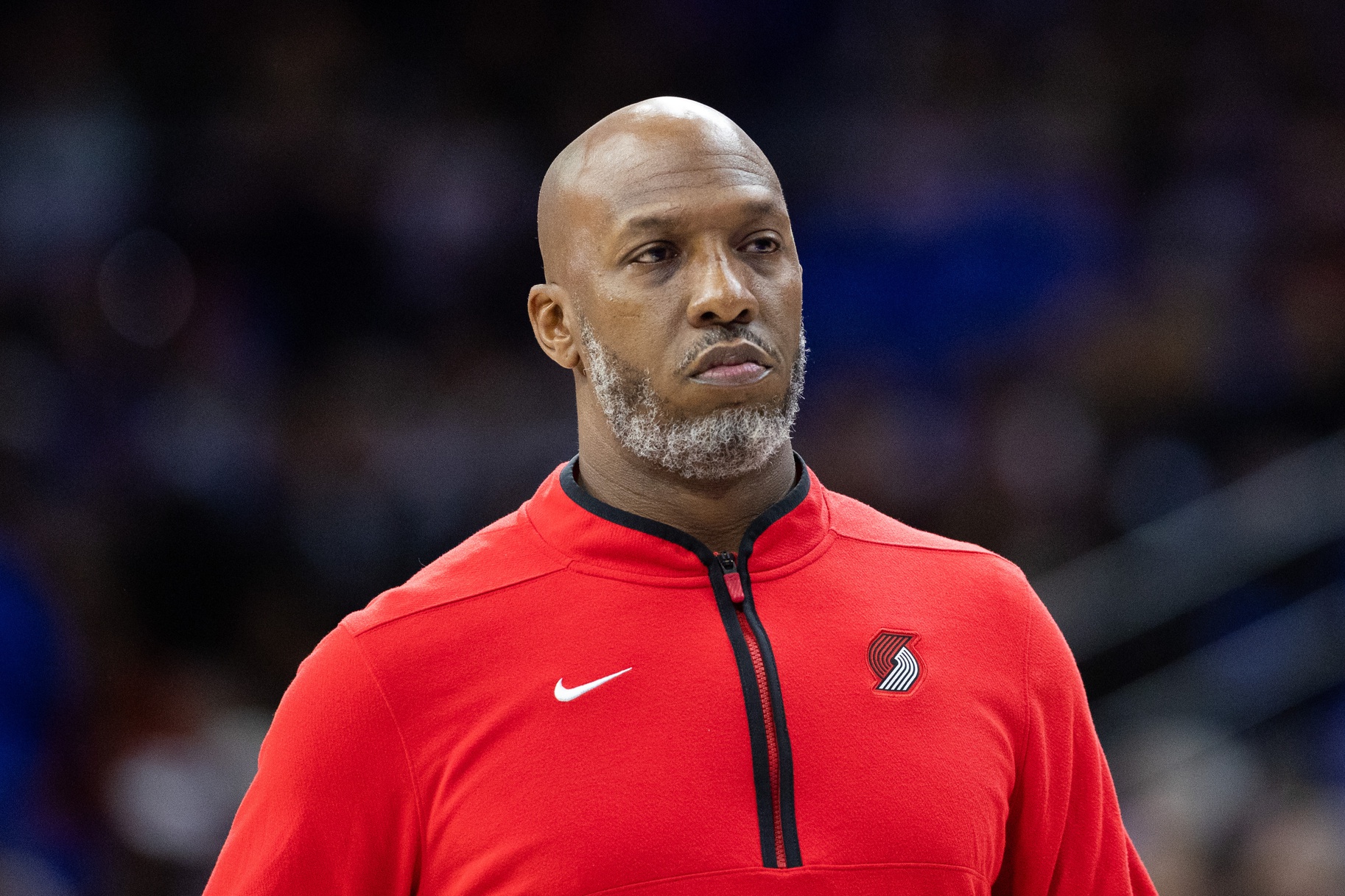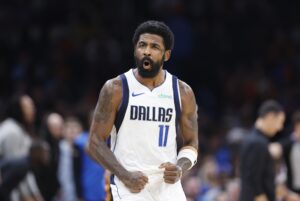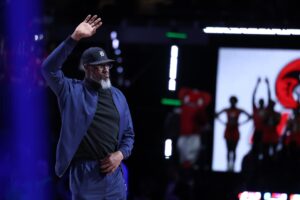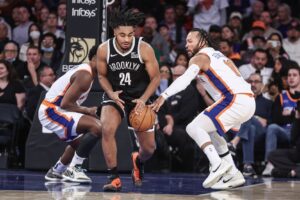Despite drafting him with the third overall pick in the 1997 NBA draft, the Boston Celtics made a trade to send Chauncey Billups to the Toronto Raptors in the middle of his rookie season. This was an unpopular move at the time and has not aged well nearly three decades later. Billups went on to become an NBA champion and Finals MVP during his Hall of Fame-caliber career. Sure, there was no telling Billups was going to blossom into this type of player while with the Celtics, but it is easy to see why this trade was unpopular even back then. Trading a top-three draft pick at the following year’s trade deadline is rare. Plus, Billups was a pretty good basketball player in his rookie season already–averaging 11.1 points and 4.3 assists over 25.4 minutes per game with the Celtics.
So why did the Celtics trade Billups, and what did they get in return for “Mr. Big Shot”?
Boston Celtics Trade Review #12: Chauncey Billups to the Raptors
Full Trade Details
Boston Celtics receive: Kenny Anderson, Popeye Jones and Žan Tabak
Toronto Raptors receive: Chauncey Billups, Dee Brown, Roy Rogers and John Thomas
The Reason The Celtics Traded Chauncey Billups to the Raptors
It is important to remember that the 1997-98 NBA season was Rick Pitino’s first as the Boston Celtics’ head coach and executive. Plus, the Celtics had just missed out on the No. 1 pick of the 1997 draft that eventually became basketball legend Tim Duncan. At the time of the trade, the Celtics were 24-29. This is despite the team defeating the reigning champion Chicago Bulls on opening night and being 16-14 at one point. Pitino was in win-now mode and wanted to acquire veterans that could help the team immediately, even if it meant trading away young talent.
Talking about trading Billups in 2012, Pitino said, “We were struggling at the time and we needed it ‘now.’ Probably, that was a mistake. We should have taken our lumps and stayed with him.” Additionally, the Celtics were acquiring Anderson, who averaged 17.5 points per game the season prior. Anderson had just been traded away from the Portland Trail Blazers and refused to play for the Raptors. Because of this, Pitino took his shot and bought low on the former All-Star. In a separate interview, Pitino said he also made the trade to save money because Toronto was going to take on Anderson’s entire contract.
Why the Raptors Acquired Chauncey Billups
The Raptors had just selected Tracy McGrady with the ninth pick of the 1997 draft and now had the opportunity to acquire the player who went third overall the same year to pair with him. In exchange, the Raptors sent somebody who was never going to suit up for the team anyway alongside two role players. On top of that, the Raptors were 11-40 when they made this trade–dead last in the Eastern Conference. Because of this, the Raptors found themselves in great position to have a high draft pick in 1998. This trade was as low-risk, high-reward as one can be.
Aftermath
Boston Celtics
The Boston Celtics finished the 1997-98 NBA season with a 36-46 record and missed the playoffs for the third consecutive year. Boston ended up with the No. 10 pick in the 1998 draft and selected Paul Pierce. During the 2000-01 season, Pitino resigned as Boston’s head coach due to his inability to adapt to NBA basketball, ending his Celtics tenure with a 102-146 record.
Kenny Anderson
Anderson spent five seasons with the Celtics. In those five seasons, Anderson averaged 11.3 points and 5.2 assists per game on 43.5 FG%. Anderson’s best year as a Celtic was the 1999-00 season as he played and started all 82 games and averaged 14 points and 5.1 assists per game. In July 2002, the Boston Celtics made a trade that sent Anderson to the Seattle Supersonics.
Popeye Jones
Jones only played 18 games for the Celtics and started two of them. In his Celtics career, the Tennessee native averaged 3 points and 2.9 rebounds over 11.4 minutes per game. The Celtics traded Jones to the Denver Nuggets in August 1999.
Žan Tabak
Like Jones, Tabak only played 18 games for Boston. Tabak averaged 3.3 points and 3.2 rebounds per game while with the Celtics. The Croatian center signed with the Indiana Pacers in the following offseason.
Toronto Raptors
The Raptors ended the 1997-98 season with a 16-66 record, the second-worst in the NBA behind the Nuggets. With the fourth pick in the 1998 draft, the Raptors selected Antawn Jamison. However, the team traded him immediately to the Golden State Warriors for Vince Carter and cash. Carter went on to win the 1999 NBA Rookie of the Year award with the Raptors.
Chauncey Billups
Billups had a short stay in Toronto. After 29 games, the Raptors traded Billups to the Nuggets. One year later, the Nuggets traded Billups to the Orlando Magic. Due to an injury, however, Billups never played for the Magic. In August 2000, Billups signed with the Minnesota Timberwolves, making this his fifth team in four years. Though his two-year Timberwolves stint was average, this stop allowed Billups to blossom as a player. In his 2016 “Letter to My Younger Self,” Billups reflected on his Timberwolves tenure and the importance of Terrell Brandon as his mentor:
And then, finally: you’ll have Terrell Brandon.
Terrell will be a star point guard, in his prime, when you arrive in Minnesota — which means that you’re not going to start at the one right away.
But this isn’t about “right away,” Chauncey. Not anymore.
No, this is about building a foundation, now, and earning yourself a career. You want to be a point guard, Chaunce? Then be a backup point guard. Start at the two-spot when they need you, sure — but don’t shy away from the word “backup,” either. Embrace it. Learn from the star vet. Learn from Terrell. And then build something of your own from scratch.
Build the best Chauncey Billups possible.
In 2002, Billups signed with the Detroit Pistons and finally broke out. The former Celtics draft pick won a championship and became Finals MVP with Detroit in 2004 and played the best basketball of his career with the team.
Throughout his 17-year NBA career, Billups averaged 15.2 points, 3.2 rebounds, and 5.4 assists per game. In addition to his ring and Finals MVP, Billups was also a five-time All-Star, a 2006 All-NBA Second Team member, a two-time All-NBA Third Team selection, and a two-time All-Defensive Second Team selection.
Currently, Pro Basketball Reference has the former Celtics draft pick listed with an 84.4% chance of making it to the Hall of Fame. Billups’ 84.4% is the second-highest probability among eligible players who are not currently in the Hall of Fame (only behind Larry Foust‘s 94.2%).
Chauncey Billups is a Hall of Famer.
That’s the tweet. pic.twitter.com/J6bFaKYnhr
— George Karl (@CoachKarl22) October 4, 2023
Dee Brown
Brown played parts of three seasons with the Raptors, averaging 10.1 points per game as a role player. In August 2000, Brown signed with the Magic but only played 14 total games over two seasons with the franchise.
Roy Rogers
Rogers played in just six games for the Raptors, averaging 2.2 points and 2 rebounds per game. The Raptors traded Rogers to the Houston Rockets in June 1998. Interestingly, Rogers was a part of the 1999 trade that sent him to the Chicago Bulls for a returning 38-year-old Scottie Pippen.
John Thomas
In parts of three seasons with the Raptors, Thomas played in 115 games and started 17 of them. Thomas averaged 2.8 points and 2.1 rebounds per game. After the 1999-00 season, Thomas was out of the league for a few years before signing with the Timberwolves in 2004.
The Last Word
This trade has been deemed the worst in Celtics history by many, and it is easy to see why. Sure, it is likely that Billups was never going to develop into a star under Pitino, but trading a potential Hall of Fame guard during his rookie season is never easy to look past. The only saving grace for the Celtics is that Anderson had the longest tenure with their new team among everyone involved in the trade and was a solid starter for the franchise. Still, this is a trade that, in hindsight, deserves to be considered the worst in team’s history. If Pitino had a chance, it seems to be guaranteed he would not have made this trade.
Verdict: This trade is more about the Boston Celtics losing rather than the Raptors winning. Regardless, the point goes to the Raptors and it is not even a debate.






